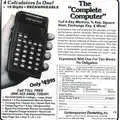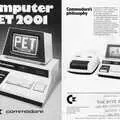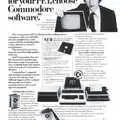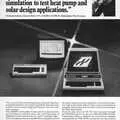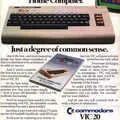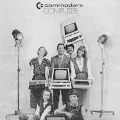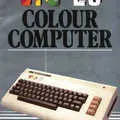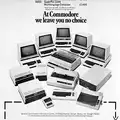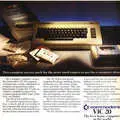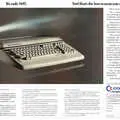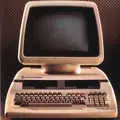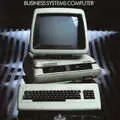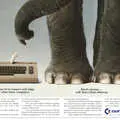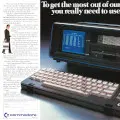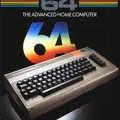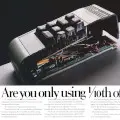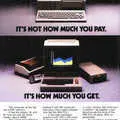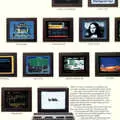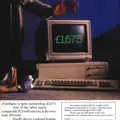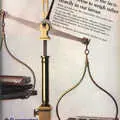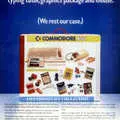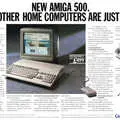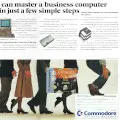
Commodore Advert - January 1982
From unknown
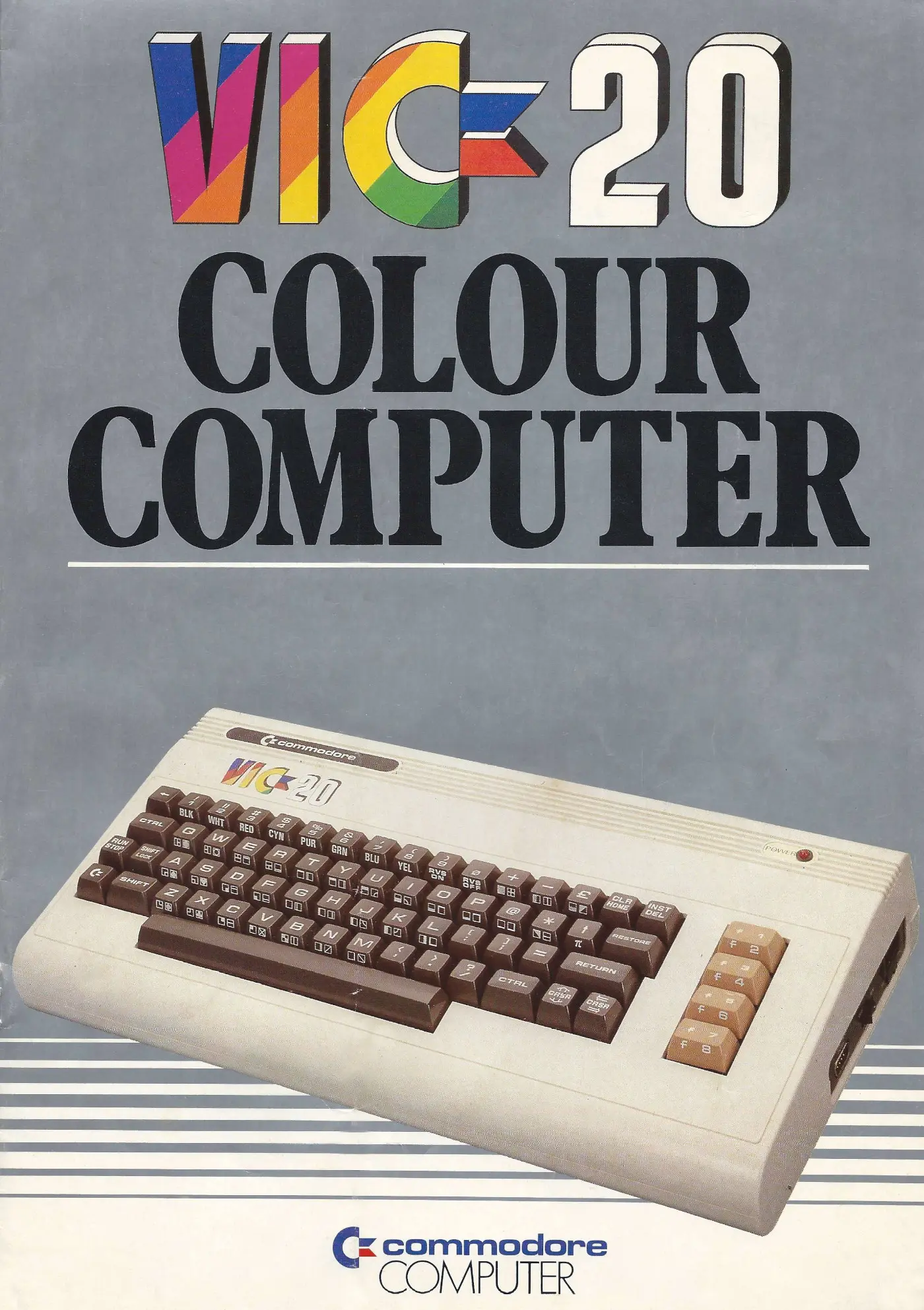
VIC-20 Color Computer - What VIC-20 Can Do For You
This nice gate-fold sales material was made for the VIC-20 a few months after its UK launch.
It's full of archetypal 80s people looking at screens, and the blurb contains information on how the VIC-20 can help with home accounts, menu planning and even as a small-business machine.
This latter suggestion is perhaps a little optimistic given the VIC-20's 23-character display line.
It also shows in detail all the available interface connections, and included a full-size image of the computer in the middle of the booklet.
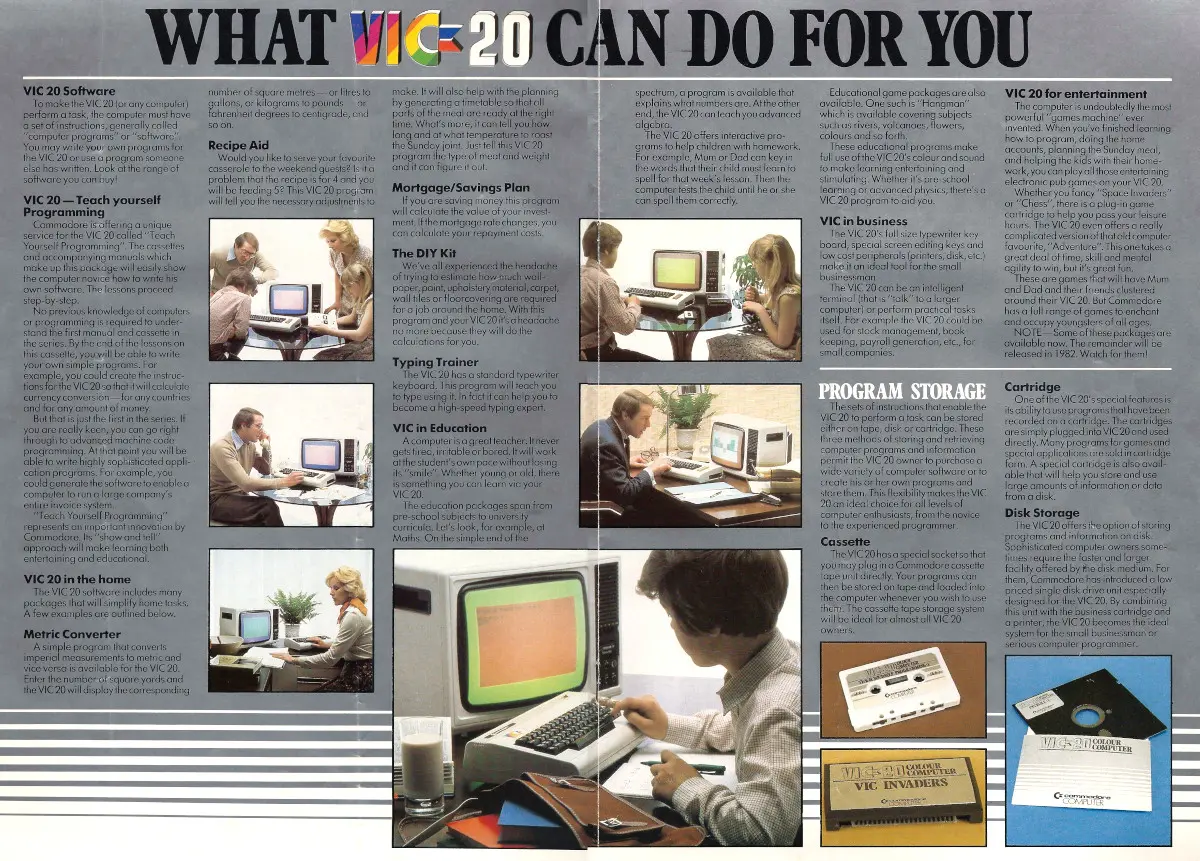
What VIC-20 can do for you, and some archetypal 80s families
Commodore announced some possible follow-ups to the VIC-20 at the Commodore Computer Show in London on the 3rd-5th June, 1982, although these seemed to be along the lines of "throw out a load of random stuff and see what sticks".
These included the VIC-10 - a £100 (£490 in 2026) bottom-of-the-range games and music synthesizer which used a 6566 video chip, the same SID sound chip that had been developed for the Commodore 64 and which provided a 40-column hi-res display, together with 2K RAM.
Oh, and no resident BASIC, as this was available as a cartridge for extra cash.
Even so, apart from the last two features, the VIC-10 was actually much better on paper than the VIC-20 it was meant to be the poor relation of.
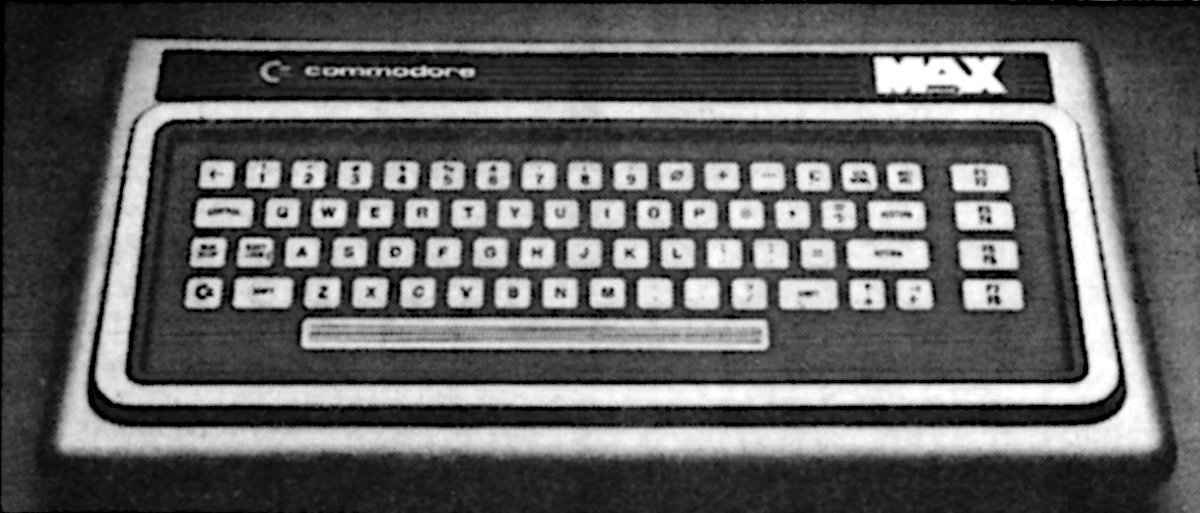
The VIC-10, also known as Ultimax or the Max Machine, from Your Computer, October 1982
Described by Commodore as "A retail-oriented, games-playing computer"[1], the VIC-10 had first been announced in January 1982 at Las Vegas CES, where it was original known as Ultimax.
It was later renamed The Max Machine, and had been launched more to gauge public opinion than as a real product.
The Max was still being touted towards the end of 1982 - it had been expected to launch in the UK around Christmas - but was eventually canned, even though a significant number had been manufactured and sold in Japan[2]. Somewhat tellingly, Your Computer reckoned that:
"Probably only beginners will be interested in its programming possibilities".
The prime reason given for the abandoning the Max was the plastic keyboard, referred to by VIC-20 product manager/marketing manager Michael Tomczyk as "horrible" and "flat".
Commodore would eventually file a $30 million lawsuit in August 1983 against its supplier claiming that it had assembled 35,000 units which all had keyboard problems[3].
Also announced at the Commodore Computer Show was the VIC-30 - the same as the VIC-10 but with 16K RAM and a 20K BASIC/OS built in, at a cost of £250 (£1,240) - and the £400 (£1,980) Commodore 64, which was more-or-less a VIC-30 but with 64K RAM, the ability to accept a second processor, and moveable memory mapping[4].
Of all these machines, only the 64 saw any commercial success, and although the VIC-30 itself was never released, a 16K machine known as the Commodore C16 was lauched later on.
Date created: 01 July 2012
Last updated: 14 January 2026
Hint: use left and right cursor keys to navigate between adverts.
Sources
Text and otherwise-uncredited photos © nosher.net 2026. Dollar/GBP conversions, where used, assume $1.50 to £1. "Now" prices are calculated dynamically using average RPI per year.
